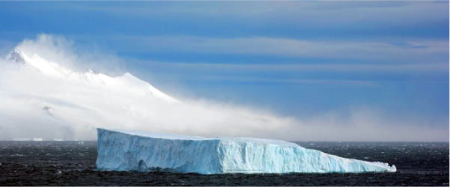| SEARCH |
-

Nov 17, 2015
Reflections on a three-decade legacy
The International Geosphere-Biosphere Programme (IGBP) will come to a close at t...
-
Nov 17, 2015
Use of and access to content on this website
Text and images produced by IGBP in house are free to use with appropriate credi...
-
Nov 12, 2015
Bella Gaia performance and panel discussion to mark IGBP's closure
A musical performance by Bella Gaia will celebrate the achievements and legacy o...
-

Towards Future Earth:
evolution or revolution?
During its three decades of existence, the International Geosphere-Biosphere Pro...
-
A personal note on IGBP and the social sciences
Humans are an integral component of the Earth system as conceptualised by IGBP. João Morais recalls key milestones in IGBP’s engagement with the social sciences and offers some words of advice for Future Earth.
-
IGBP and Earth observation:
a co-evolution
The iconic images of Earth beamed back by the earliest spacecraft helped to galvanise interest in our planet’s environment. The subsequent evolution and development of satellites for Earth observation has been intricately linked with that of IGBP and other global-change research programmes, write Jack Kaye and Cat Downy .
-
Deltas at risk
Around 500 million people worldwide live on deltas, but many of the world's deltas are sinking due ...
-
Climate change: the state of the science
A new data visualization released on the first day of the plenary negotiations at the UNFCCC’s clima...
-
Climate Change:
the State of the Science
Videos now online from the Stockholm public forum to mark the launch of the IPCC's climate report, 2...
Marine ecosystems and climate variation
Stenseth N C, Ottersen G, Hurrell J W and Belgrado A (eds)

This research level text focuses on the influence of climate variability on the marine ecosystems of the North Atlantic. The ecological impact of climate variability on population dynamics is addressed at the full range of trophic levels, from phytoplankton through zooplankton and fish to marine birds. Climate effects on biodiversity and community structure are also examined. 40 scientists from around the world synthesise what is currently known about how climate affects the ecological systems of the North Atlantic and then place these insights within a broader ecological perspective. Many of the general features of the North Atlantic region are also seen in other marine ecosystems as well as terrestrial and freshwater systems. The final section of the book makes these generalities more explicit, so as to stimulate communication and promote co-operation amongst researchers who may previously have worked in semi-isolation.
The book comprises 5 main sections: background (general introduction, atmospheric and ocean climate of the North Atlantic, and modelling methodology), plankton populations (phytoplankton and zooplankton), fish and seabird populations, community ecology (phytoplankton, benthos and fish), and the final section consisting of six commentaries from scientists working in areas outside the North Atlantic marine sector. In order to enhance integration, a series of introductions link chapters and sections. Throughout the book, numerous examples highlight different aspects of ecology-climate interactions. They document recent progress and illustrate the challenges of trying to understand ecological processes and patterns in the light of climate variations.

IGBP closed at the end of 2015. This website is no longer updated.
-

Global Change Magazine No. 84
This final issue of the magazine takes stock of IGBP’s scientific and institutional accomplishments as well as its contributions to policy and capacity building. It features interviews of several past...
-

Global Change Magazine No. 83
This issue features a special section on carbon. You can read about peak greenhouse-gas emissions in China, the mitigation of black carbon emissions and the effect of the 2010-2011 La Niña event on gl...
-
INTERGOVERNMENTAL PANEL ON CLIMATE CHANGE:
How green is my future?
UN panel foresees big growth in renewable energy, but policies will dictate just how big.
-
UK:
'The Anthropocene: a new epoch of geological time?'
Royal Society, Philosphical Transactions A




















